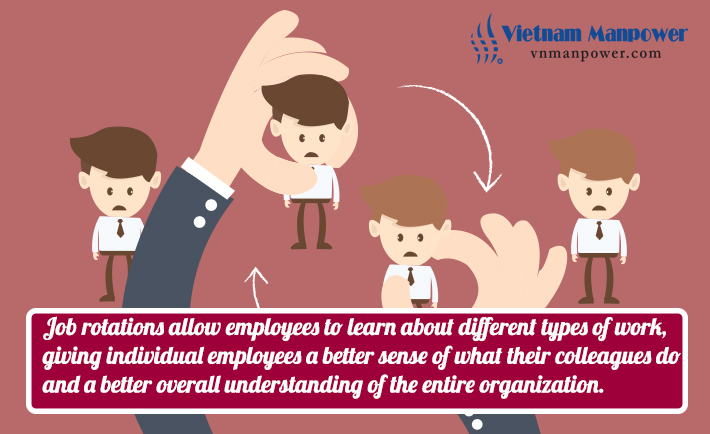Job hopping is the practice of changing jobs frequently (several times in a few years). People who change their jobs so often are called job hoppers.

Statistics of the US Bureau of Labor shows that the average tenure of American young workers aged 20-34 is only 2.3 years in 2014. While job hopping seems to be a big opportunity for employees to diversify their skills and experiences in different organizations, broaden their networks and raise the income; it becomes a headache issue for employers to keep or hire satisfied talents.

Of course, there remains argument on should employers hire job hoppers. On the one hand, job hoppers bring a wide range of skills and broader knowledge that employees who work for a same position in a long time can't acquire. On the other hand, their speed of job jumping makes employers confused about candidates' loyalty and consistency. Nevertheless, according to a survey conducted by CareerBuilder in 2014, 55% employers accept to hire job hopers due to their wide range of expertise and quick adaption.
Information Technology, an industry with a notable talent shortage and highly competitive recruitment tactics, has the largest percentage of employers who expect workers to job-hop. Rounding out the top five industries are:
- Information Technology – 42 percent
- Leisure & Hospitality – 41 percent
- Transportation – 37 percent
- Retail – 36 percent
- Manufacturing – 32 percent

High employee turnover have had a negative impact on the company's production and finance. The cost of replacing a worker is much higher than average salary. Obviously, to seek a new candidate who can fit well to the organization is a tough work. Everyone need to take some time to adapt to new environment, right?
Job hopping has become the new normal, especially among millennial. This practice changes the position between recruiter and candidate in some ways. Under these circumstances, employers have to put themselves in employees' shoes to make current staffs satisfied. After all, building employees' loyalty is the key to keep talents from job hopping. Here are some suggestions for you to keep employees from job hopping:
- Offer generous benefits

Notice that a lot of job hoppers expect more salary, bonus and compensation each time they change jobs. Of course the benefits must depend on each organization's capacity and employee's performance.
- Build an awesome corporate culture

The young often consider corporate culture as one of the most important factors when they decide to take or quit a job. They love to contribute to the companies make them feel social and interesting. Give them options of working from home and/or flexible working hours if possible.
- Give them new objectives

Job hoppers are not willing to be a small part of an organization and work in the same position for a long time. If you want to keep them, job rotation is an effective idea to give them opportunities to do different tasks, which can even save you more money.
- Allow raises, promotions and rewards

It's a good way to increase job satisfaction of employees in general and millennial in particular. Besides, face-to-face communication between boss and each staff can raise loyalty by discussion on company's future and employee's intention.
- Provide opportunities for their career development

Job hoppers appreciate feedback from bosses and further training courses to help them foster their career. As an employer, you may want to negotiate some conditions before send them to the courses to ensure they will use this knowledge to serve your organization in at least a period of time.
In brief, job hopping or career jumping is not considered as red flags anymore. Employers should prepare carefully for high employee turnover to minimize negative influences and even get benefits from this trend.












Replies to This Discussion